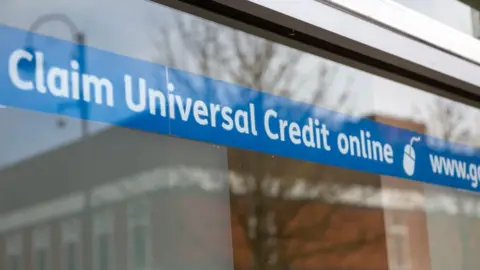
Universal Credit serves as a vital lifeline for many individuals and families in the UK, providing financial support to cover essential living expenses. However, there may come a time when a Universal Credit claim is closed, either voluntarily or involuntarily. In this guide, we’ll explore the reasons why a Universal Credit claim may be closed and what happens next for claimants.
Reasons for Universal Credit Claim Closure
Before delving into the process, it’s essential to understand why a Universal Credit claim may be closed. There are several reasons why this might occur:
- Change in Circumstances: Changes in personal circumstances, such as starting or ending employment, moving to a new address, changes in income, or changes in household composition, can affect eligibility for Universal Credit. If claimants fail to report these changes promptly, their claim may be closed.
- Failure to Meet Requirements: Universal Credit claimants must fulfill certain requirements to maintain their entitlement. This includes attending appointments, providing requested information, actively seeking work (for those who are able to work), and meeting other conditions set by the Department for Work and Pensions (DWP). Failure to comply with these requirements may result in claim closure.
- Improvement in Financial Situation: If a claimant’s financial situation improves significantly, they may no longer meet the eligibility criteria for Universal Credit. This could occur if they start earning more income, receive other benefits, or experience changes that affect their entitlement.
- Voluntary Closure: Claimants may choose to close their Universal Credit claim voluntarily for various reasons, such as finding employment, no longer needing financial support, or transitioning to a different benefit.
What Happens When a Universal Credit Claim is Closed?
When a Universal Credit claim is closed, several steps are typically taken to manage the transition:
- Notification: The claimant receives notification from the DWP informing them that their Universal Credit claim is being closed. This notification will outline the reasons for the closure and any actions the claimant needs to take.
- Final Payment: Claimants may receive a final payment of Universal Credit covering the period up to the closure date. This payment will include any outstanding entitlements and adjustments based on changes in circumstances.
- End of Entitlement: With the closure of the claim, the claimant’s entitlement to Universal Credit ceases. They will no longer receive regular payments from the DWP.
- Repayment of Overpayments: If the claimant has been overpaid Universal Credit, they may be required to repay the excess amount. Overpayments can occur due to errors in calculations, failure to report changes, or other factors.
- Review of Other Benefits: Upon closure of the Universal Credit claim, claimants may need to review their eligibility for other benefits, such as Housing Benefit, Jobseeker’s Allowance, Employment and Support Allowance, or tax credits. They may need to make separate claims for these benefits if applicable.
- Return of Equipment: If claimants received equipment or support through Universal Credit, such as work-related expenses or childcare assistance, they may need to return any unused equipment or funds.
Appealing a Closure Decision
If claimants disagree with the decision to close their Universal Credit claim, they have the right to appeal. The appeals process allows claimants to challenge decisions they believe are incorrect or unfair. To appeal a closure decision, claimants must follow the procedures outlined by the DWP, which typically involve submitting a request for reconsideration followed by an appeal to an independent tribunal if necessary.
Managing Financial Transition
For claimants whose Universal Credit claim is closed, managing the financial transition is crucial. Here are some steps they can take:
- Budgeting: Assessing current financial resources and creating a budget can help claimants manage expenses during the transition period.
- Exploring Other Support: Claimants should explore other forms of support available, such as local welfare assistance schemes, charitable organizations, or community resources that provide food, clothing, or financial aid.
- Seeking Employment: For those who are able to work, actively seeking employment can help improve financial stability. Jobcentres and employment support services can offer guidance and assistance with job search and training opportunities.
- Seeking Advice: Claimants who are unsure about their rights, entitlements, or options following the closure of their Universal Credit claim should seek advice from independent advice agencies, such as Citizens Advice or welfare rights organizations.
Conclusion
The closure of a Universal Credit claim can be a challenging and uncertain time for claimants, but understanding the reasons behind the closure and the steps involved can help manage the transition effectively. By staying informed, seeking support when needed, and exploring alternative options, claimants can navigate the process with confidence and move forward towards financial stability and independence.
